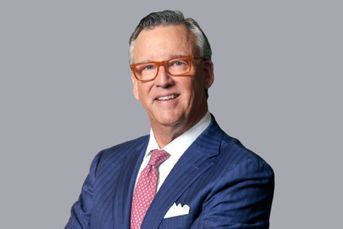J.D. Power survey: 401(k) savers lack help from plan providers

Only 15% of participants in the survey said they received messages through mobile apps at the beginning of the COVID-19 crisis
Retirement plan participants didn’t get enough communication from 401(k) providers at the beginning of the COVID-19 crisis — and that could cost those firms rollover business.
More than one-in-five participants said they have had no interaction with their plan providers at all over 12 months, according to a report this week from J.D. Power. Just over a quarter, 27%, said they have used financial advice available within their plans, though 29% said they don’t know if such services are available to them, J.D. Power wrote.
For 401(k) providers, those interactions can make a world of difference. The number of interactions with participants is correlated to how satisfied those clients are with the provider, as well as how likely they are to keep money with that firm after leaving a job, according to the report.
And with employment changes surging this year amid millions of layoffs, a lot of money will be changing hands, with “a surge in roll-in and rollover decisions during the coming weeks and months,” the report noted.
Plan providers “historically care most about the plan sponsor,” said the report’s author, Michael Foy, senior director of financial services in J.D. Power’s wealth management practice. “Most of their effort is focused there, [but] they’ve started to pay more attention to the individual participants.”
Participants might have more sway with plan sponsors than they have in the past, Foy said. And importantly for plan providers, participants are the ones who decide where to move their 401(k) assets after leaving a job, he noted.
Of the more than 8,000 plan participants J.D. Power surveyed in February and March, 22% said they were “delighted” with their plan providers, rating them above 900 of a possible 1,000 points. Another 38% indicated they were “pleased” with the companies, rating them with 750 to 900 points. Twenty-one percent said they were indifferent, and 18% showed dissatisfaction, according to J.D. Power.
Of the participants who said they were happiest with their providers, 51% said they definitely would retain assets with those firms. For those who indicated they were pleased with plan providers’ services, 24% said they would definitely keep assets with the firms. Those figures were lower for indifferent and dissatisfied participants, at 12% and 7%, respectively, according to the report.
One way for 401(k) providers to improve customer relations is to send personalized messages through the provider’s mobile app, which bumped up satisfaction scores 70 points higher than when similar messages were sent via email, according to the report. Only 15% of participants surveyed said they received messages through such apps.
That kind of communication was probably helpful as the markets were tumbling earlier this year, as participants had questions about contributions and rebalancing, Foy said.
“Delivering ‘pretty good’ is not good enough. When you’re really delivering something exceptional, you’re dramatically improving the chances of retaining those assets over time,” he said. “A lot of participants are really just disengaged. They have very limited interaction with the provider. They’re largely unaware of resources that could help them make decisions.”
For retirement plan advisers helping sponsors select providers, the findings hint at the importance participants place on communication.
THE RANKINGS
The top-rated plan providers by participant satisfaction in large plans were Bank of America (801) and Charles Schwab (801), according to the survey results, while the lowest-scoring firms were Voya Financial (732), Empower Retirement (728) and Alight Solutions (699).
In medium-sized plans, Bank of America (827) and Schwab (825) were also rated highest, and Transamerica (753), Empower (742) and Voya (739) had the bottom scores.
Among small plans, Fidelity Investments (797) and AIG Retirement Services (787) got top marks, while John Hancock Retirement Plan Services (741), Empower (729) and Paychex (712) were rated lowest, according to J.D. Power.
The survey “was enlightening in that, on a scale of 1,000 points, the providers ranked roughly within the same 100-point range or less,” a Transamerica spokesperson said in a statement to InvestmentNews. That firm welcomes customer feedback and uses it “to continually enhance our ability to serve participants.”
The company hosted about 20 webinars for participants about market volatility, after the markets dropped during the first quarter, according to the firm.
“We quickly provided critical information to plan sponsors and participants following the enactment of the CARES Act,” the spokesperson wrote. “This week, we expanded our participant education program with the addition of an online, free Financial Wellness Center, accessible to participants at any time.”
A spokesperson at Empower Retirement cited prior reports in 2018 and 2019 published by Newsweek showing that it was among the top three retirement plan providers for customer service.
Meanwhile, Paychex over the past year has “experienced record levels of client retention, a testament to the quality service we offer every day,” that firm’s director of service, Dustin Reding, said in a statement provided by the company. “We have an extensive program in place to listen to the feedback of our customers, and, as a result, are consistently enhancing our systems and processes to help our customers confidently prepare for retirement.”
Learn more about reprints and licensing for this article.








